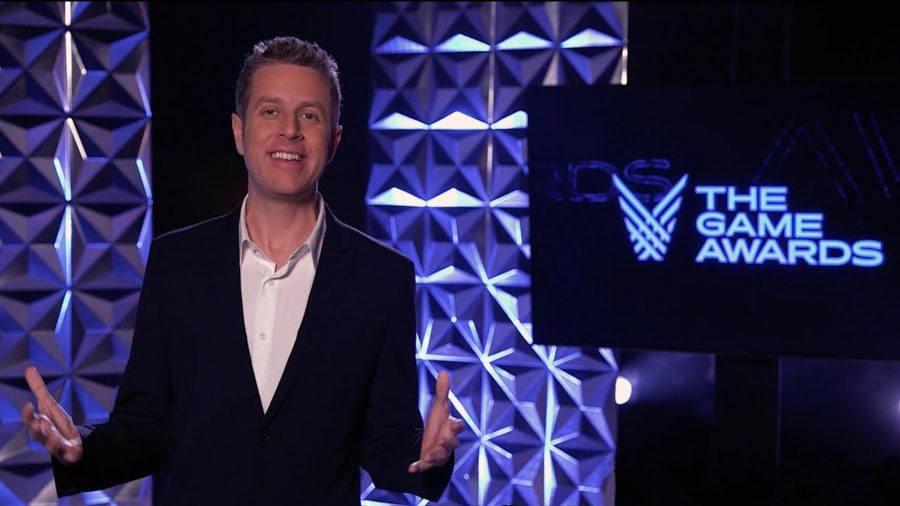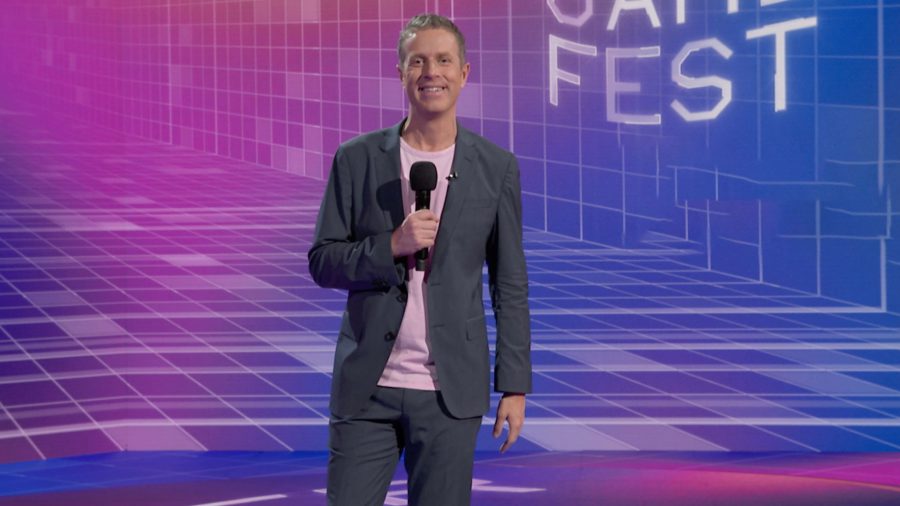Because Geoff Keighley is placed atop an equally tall building, the New York skyline looks awe-inspiring behind him. The iconic video game veteran spent some of his precious time chatting with The Loadout ahead of Summer Game Fest, and here we are.
“I’ve been to every physical E3 since it started in 1995,” Keighley said as he opened up about E3, the biggest gaming event ever. It’s clear that E3 holds a special place in the former producer’s heart, but it’s also clear that the show is rapidly losing relevance to consumers and the industry as time has passed and that it has failed to adapt and evolve.
“E3 brought about the kind of engagement issue that a lot of big companies don’t go to,” says Keighley. “I remember back in 2020 when the PlayStation 5 and the new Xbox came out, it was pretty important for E3 that Sony not being there was an object of desire rather than part of the PS5. So I still think it’s hard for me because I love what E3 represents, but I think E3 isn’t the real E3 for many years now.
Our conference wants to clarify how Geoff Keighley’s events – Summer Game Fest and The Game Awards – offer a better solution to the world of modern video games than E3, but do not replace the classic event. and he has no intention of being a competitor on his own. “It’s just different expressions and different ways of scheduling an event. E3 is traditionally a physical event that you pay to attend; Summer Game Fest is a completely free event broadcast worldwide as a live broadcast that transmits gaming news and information. In some ways, it feels more like a Nintendo Direct or State of Play than an E3.
“So it’s a different format to let fans know, and I think it’s more effective. So yeah, it’s a different format, but I don’t see it as a replacement for E3. And Game Awards, same thing. It’s an awards program that also includes news. So yeah, I think our shows are more digital and more global. That’s something that we benefit from a lot.

Keighley shows are very expensive, and that money has to come from somewhere: advertising and sponsorship. He’s already been criticized by fans for the number of ads in a series, and he knows it, but points out that the Xbox storefront, for example, is massive advertising for the company’s games.
I always try to think of the kid in Sweden or the slums of Germany who will probably never go to E3.
“Yes, there are advertisements in my programs. That’s how we pay for shows,” says Keighley. “And I think one of the big things to be aware of is that if I’m an Xbox, PlayStation, or Nintendo, I’m spending my own internal money, marketing money, to do that. For us, we have to find a way to subsidize and pay for the shows, and that’s through advertising.He voices his opinion, pointing out how The Game Awards went from the ill-fated Schick Hydrobot in 2016 to more premium sponsors like the ones below Spotify and Verizon.
One of the other options Keighley has bounced back with is crowdfunding. “I think we can start a Patreon or find another way. I’m toying with that idea, maybe we’ll have a house at The Game Awards for a year where fans can buy and do whatever they want with it.
During our conversation, it’s clear that Keighley put a lot of thought into balance and what his audience would like to see. After all, people watch his shows to celebrate and get excited about gaming, but these are issues he’s fully aware of, if not an easy fix. Take Summer Game Fest for example: “It’s a very clear premise – we’re going to show you a lot of video game trailers and that’s the show. If you want to see that, great; if not, check the highlights on the internet the next day. So yeah, I get the call and I see them all. I am fully aware of that. But you know, that’s the model we have and it works pretty well for most people.”

But the real differences between Keighley’s shows and the more traditional press-focused events that E3 represents are that Summer Game Fest and The Game Awards are much more democratic; content is delivered directly to consumers through initiatives such as Future Class, which asks the community to recognize “the inclusive future of video games” or to get demos directly to people’s machines through Steam. In other words, no one lacks anything.
“It’s deliberate,” Keighley says. “I think one of the things I really discovered with The Game Awards was how global our show was and the fact that people in China, India and other countries really wanted to see the show. and be part of it.” He knows that living in Los Angeles means he’s only steps away from most industry happenings, but most people aren’t so lucky. “I always try to think of the kid from the suburbs of Stockholm or Sweden or Germany who will probably never go to E3 but wants to be a part of something. And democratizing that experience is crucial.
Keighley’s performances certainly mark a new era of inclusivity; from knocking down the Guardians to being invited to an event and joining the press to show off the latest and greatest behind closed doors. Now people can register from the comfort of their own home.
“Five years from now, I see a world where you watch one of my shows — maybe a metaverse game — and then all of a sudden you go through a portal to play that demo,” Keighley says. “It’s the kind of thing I think is on the road. And it’s very democratic – everyone has access to it.
If you ask me how the Game Awards ranking is this year, I’m totally scared.
With two major events a year to organise, plan and manage, Keighley is busier than you might imagine. “These are year-round experiences. In October, someone came up to me and said, “Hey, when are you going to start The Game Awards? I always joke about what he’s going to say. And I said, ‘No, we worked on it last year’.” Keighley admits Summer Game Fest is a “five or six month process” and that work on The Game Awards began in December.
Two events a year might not seem like a lot, but there’s a lot on offer. “I’ve been working on The Game Awards a bit over the last half of the year,” Keighley explains, “it’s always stressful to think that your whole year has been reduced to a two-hour live show. But yes, it’s a full time job. It takes a long time to coordinate, especially considering the Game Awards, the size of this show, the talent, the physical event and the orchestra and all that.
And while so many video game announcements depend solely on you and your hosting skills, there’s pressure to put on the perfect show. “What I’ve always felt is a real necessity for a lot of these game developers who have trusted us with their announcements,” Keighley said. “If you’re going to be working on a game for two or three years and then you decide to partner with Keighley to announce it on this show, you want the game to be perfect for them.
“It really sucks sometimes when things go wrong and there have been a few instances over the past 20 years where we cut a trailer too soon or something went wrong and you’re devastated because someone trusted you. joyful. That’s why my team and I work really hard to try to be perfect in how we present the content that we get. And the other side of fear is that we know we don’t make the games so the announcements we make on our shows are basically all that’s available to us from the game companies I live in a constant state of fear as there may be no no good announcements for the show.”

Elden Ring was the biggest announcement of Summer Game Fest last year, and it clearly impresses Keighley, who realizes that very little can top that excitement. “I don’t have a secret game development studio where we can make a trailer for Summer Game Fest,” he jokes. “You just have to hope the game companies have the right stuff.
“I was lucky it went well in general, but every show is different and I worry about what the lineup will be for every show. I watch the end of most years and think ‘yeah , that’s pretty good.” But if you ask me how the Game Awards standings are this year, I’m totally scared. Like what are we going to get?
“Also, a lot of things are changing. Even now, we have games that seem to pop in and out just because they aren’t ready yet. So the most heartbreaking part of these shows is when you think you have something on your hands and after a month or two you hear that the game has been delayed. That’s why there are so many heartbreak stories on these shows as well.”
Despite fear and grief, Keighley perseveres. As the wheels of the industry continue to turn, the focus remains on delivering a world-class show that fans will be talking about for months to come. However, it’s not yet clear if this will be successful, especially in today’s game development environment.
Either way, Keighley is more optimistic than ever.
This is one of three part interviews between Geoff Keighley and The Loadout. Check back tomorrow for Part 2 where we’ll discuss the current state of the gaming industry, gaming subscription services, metadata base, and more.
Source : The Load Out

